Tyrosine Kinase
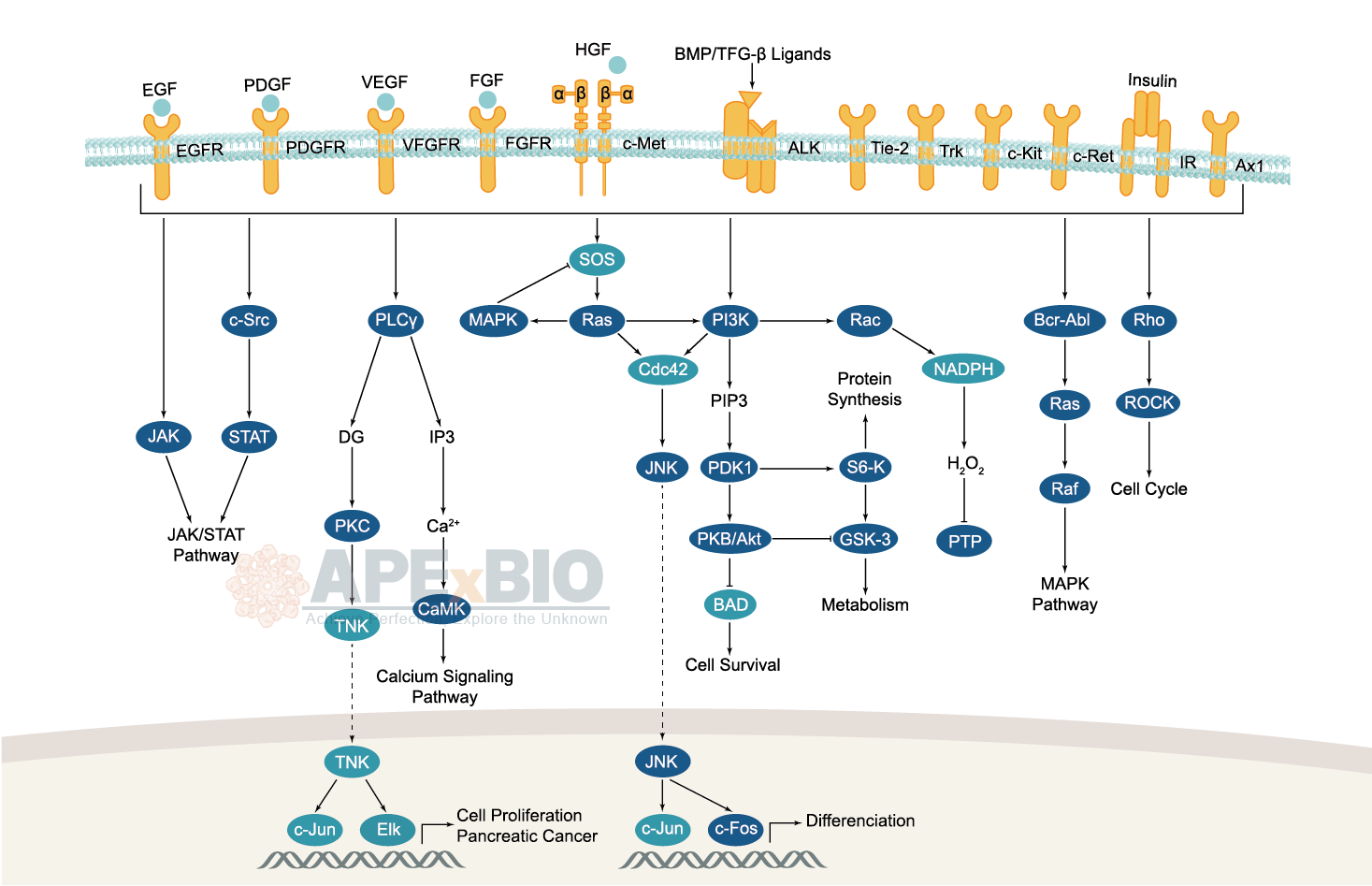
Receptor tyrosine kinases bind to extracellular ligands/growth factors, which promotes receptor dimerization and autophosphorylation of receptor tyrosine residues. This triggers a cascade of downstream events through phosphorylation of intracellular proteins that ultimately transduce the extracellular signal to the nucleus, causing changes in gene expression. Receptor tyrosine kinases include EGFR/ErbB, PDGFR, VEGFR, FGFR and MET subfamilies etc. Dysfunctions in tyrosine phosphorylation are linked to oncogenic transformation. In additions, various adaptor and effector proteins couple to carboxy-terminal of an active kinase. For instance, binding of the GRB2 adaptor protein activates EGFR and MAPK/ERK signaling.
Non-receptor tyrosine kinases involve many well-defined proteins (e.g. the Src family kinases, c-Abl, and Jak kinases) and other kinases which regulates cell growth and differentiation. For example, Src family kinases are curial for activating and inhibitory pathways in the innate immune response.
-
 B5832 Altiratinib1 CitationTarget: FLT3|VEGFR|Trk Receptors|c-MET|Tie-2Summary: c-MET/TIE-2/VEGFR inhibitor
B5832 Altiratinib1 CitationTarget: FLT3|VEGFR|Trk Receptors|c-MET|Tie-2Summary: c-MET/TIE-2/VEGFR inhibitor -
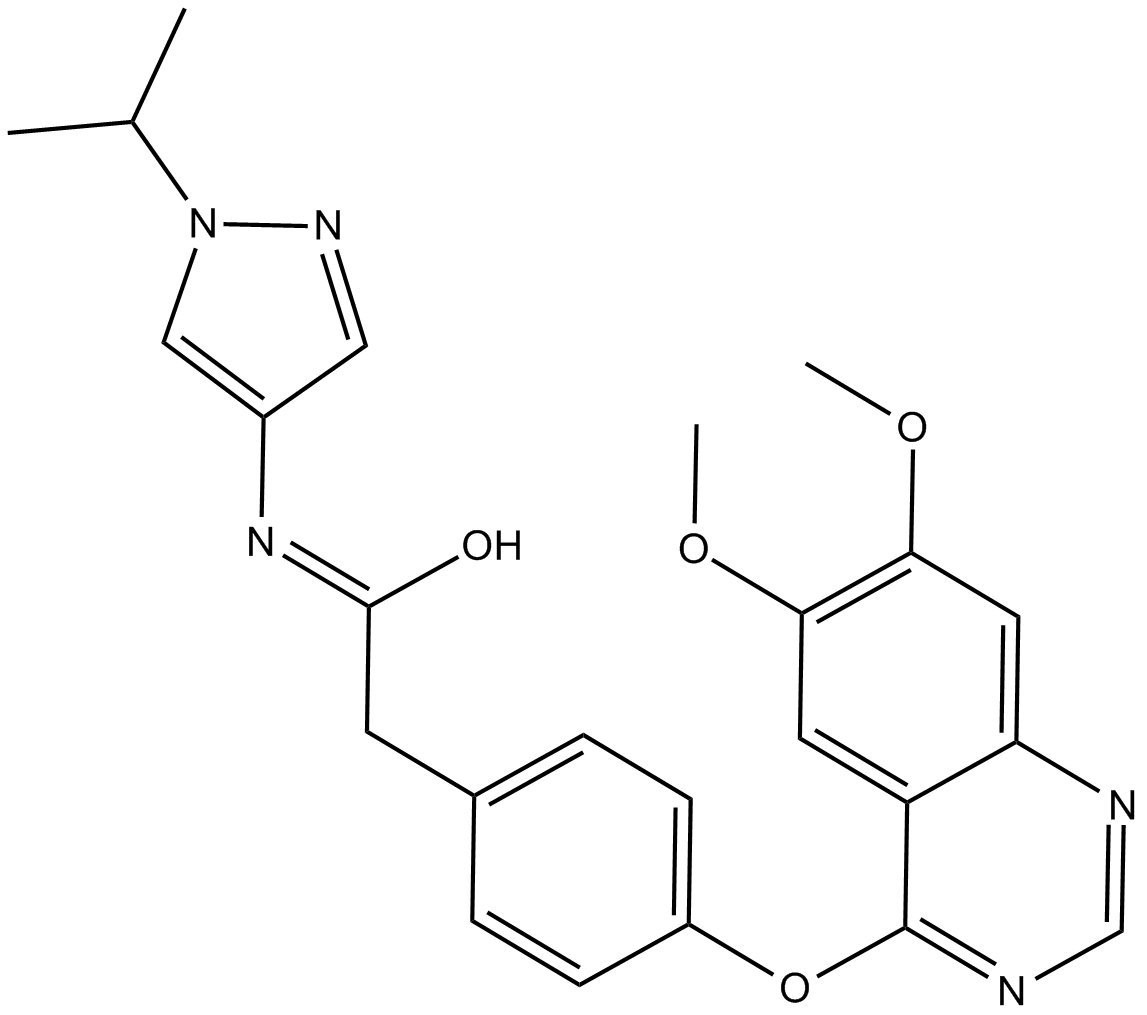 B5835 AZD2932Target: FLT3|VEGFR|PDGFR|c-KitSummary: inhibitor of VEGFR-2, PDGFRβ, Flt-3, and c-Kit
B5835 AZD2932Target: FLT3|VEGFR|PDGFR|c-KitSummary: inhibitor of VEGFR-2, PDGFRβ, Flt-3, and c-Kit -
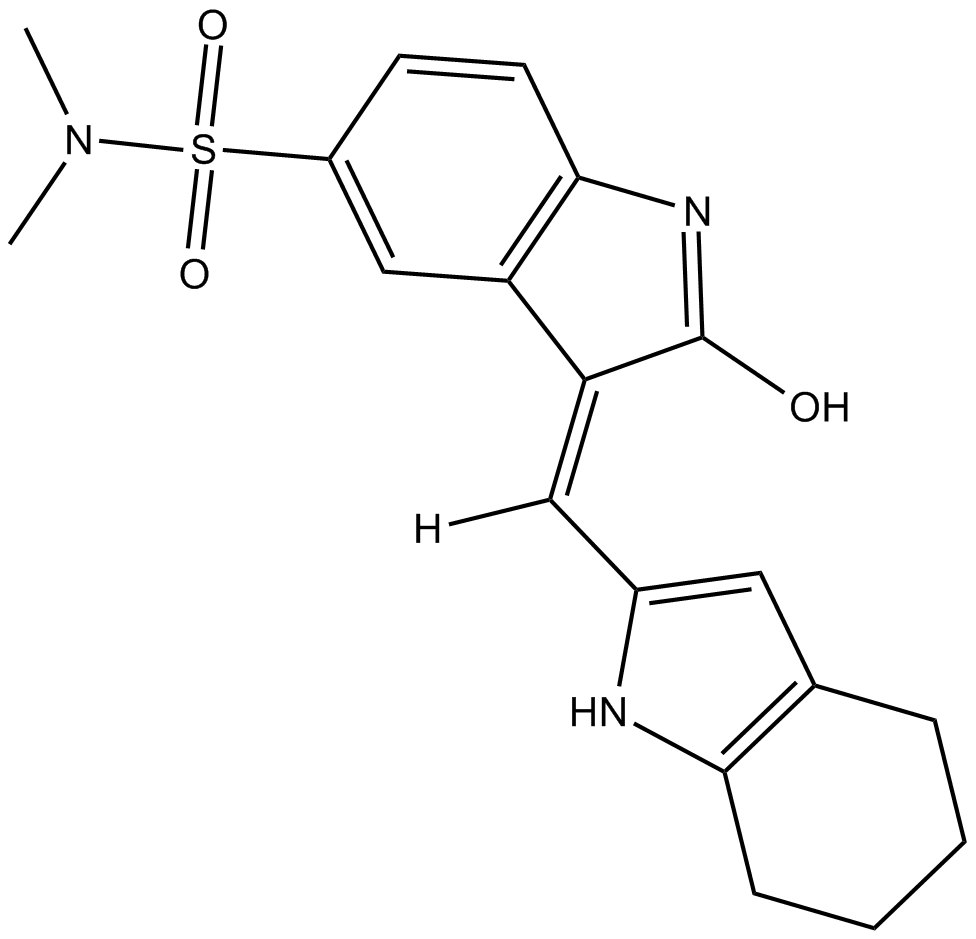 B5839 SU6656Target: Src|Lyn|YES|FynSummary: Src tyrosine kinases inhibitor
B5839 SU6656Target: Src|Lyn|YES|FynSummary: Src tyrosine kinases inhibitor -
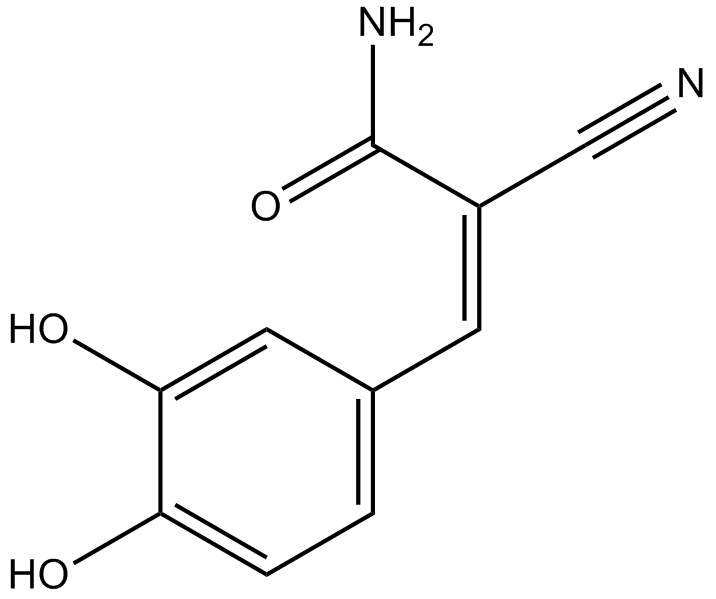 B6323 AG 99Summary: EGFR inhibitor
B6323 AG 99Summary: EGFR inhibitor -
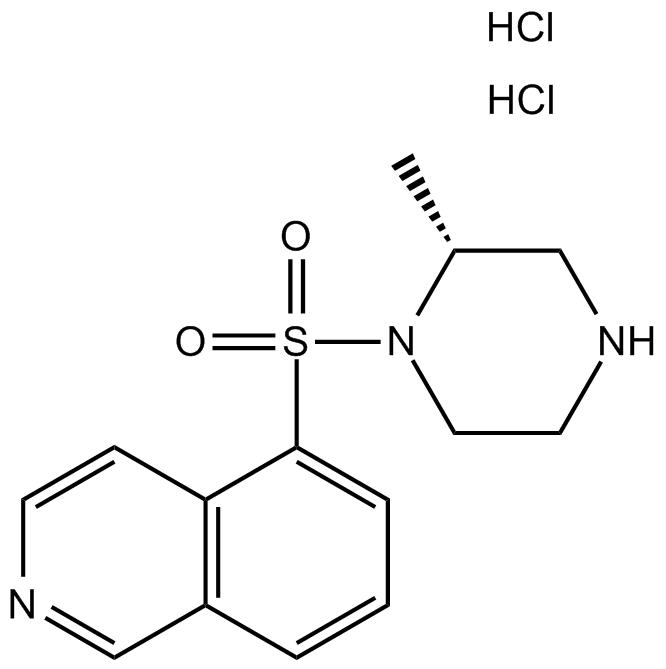 B6342 H-7 dihydrochlorideTarget: PKC|PKG|PKA|Myosin light chain kinases (MLCKs)Summary: protein kinase inhibitor
B6342 H-7 dihydrochlorideTarget: PKC|PKG|PKA|Myosin light chain kinases (MLCKs)Summary: protein kinase inhibitor -
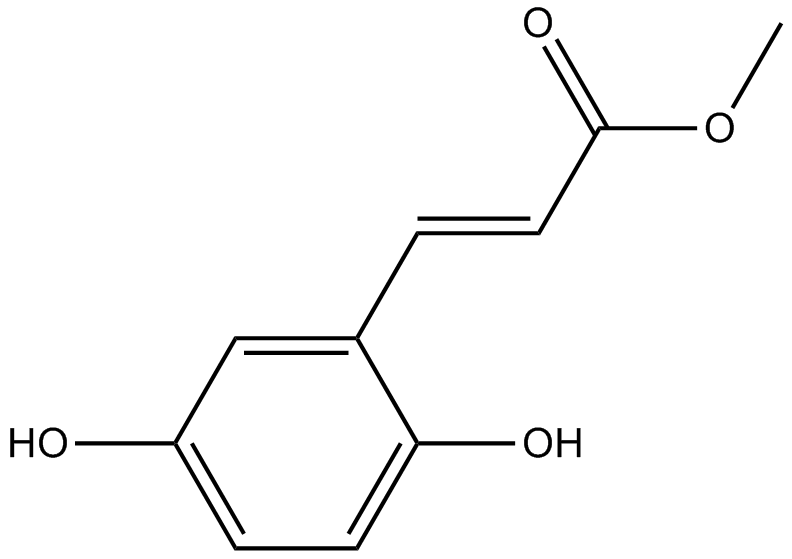 B6358 Methyl 2,5-dihydroxycinnamateSummary: EGF receptor-associated tyrosine kinases inhibitor
B6358 Methyl 2,5-dihydroxycinnamateSummary: EGF receptor-associated tyrosine kinases inhibitor -
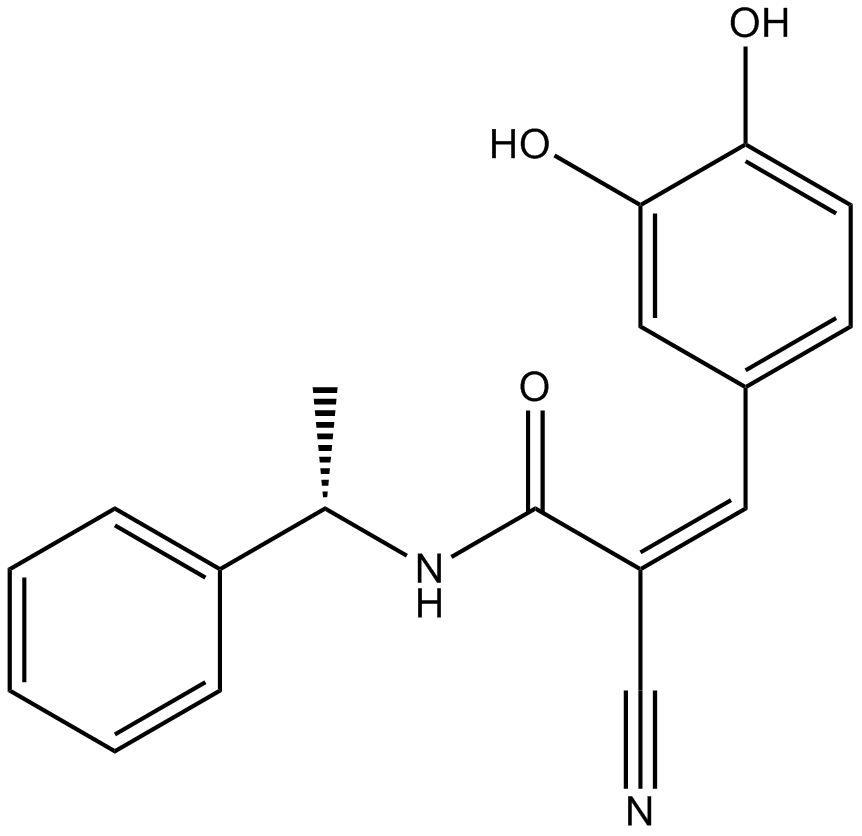 B6360 Tyrphostin B44, (+) enantiomerSummary: EGFR-kinase inhibitor
B6360 Tyrphostin B44, (+) enantiomerSummary: EGFR-kinase inhibitor -
 B6376 AG 556Summary: EGFR inhibitor
B6376 AG 556Summary: EGFR inhibitor -
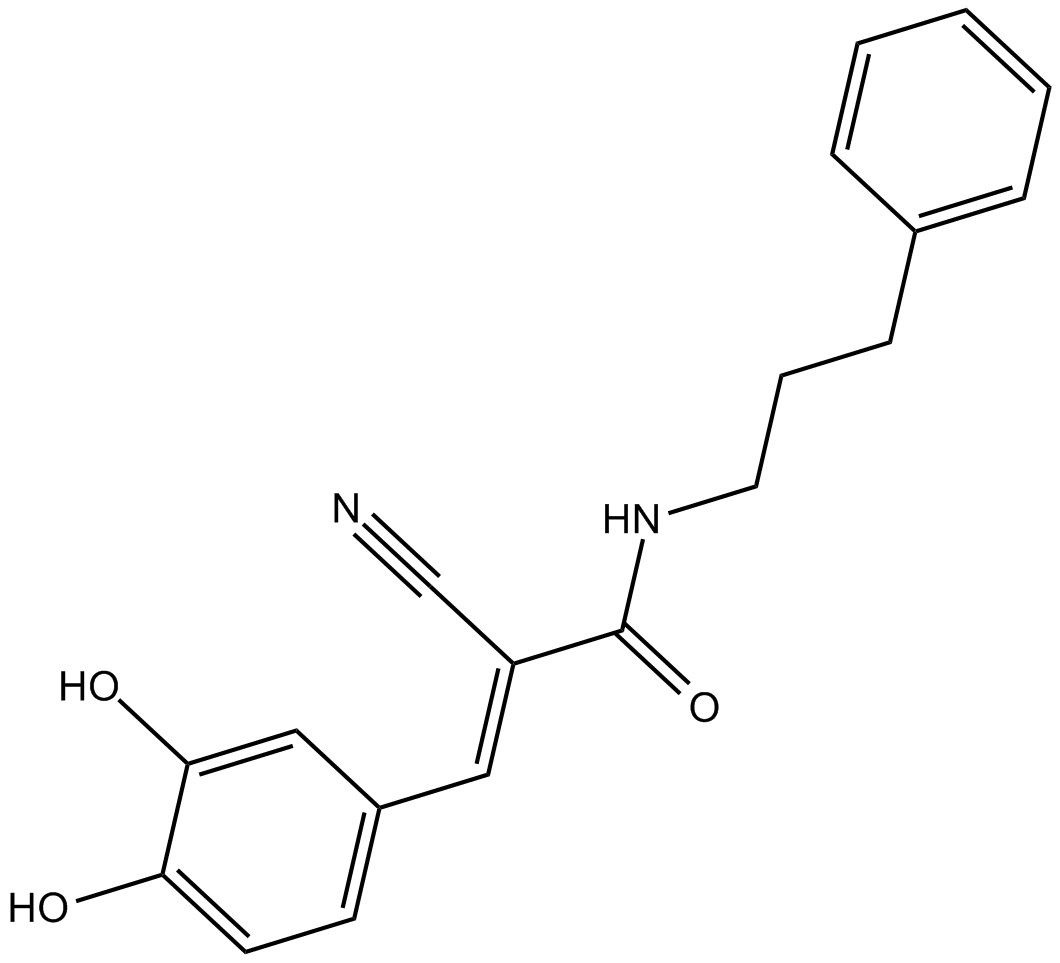 B6377 AG 555Summary: Potent EGFR-kinase inhibitor
B6377 AG 555Summary: Potent EGFR-kinase inhibitor -
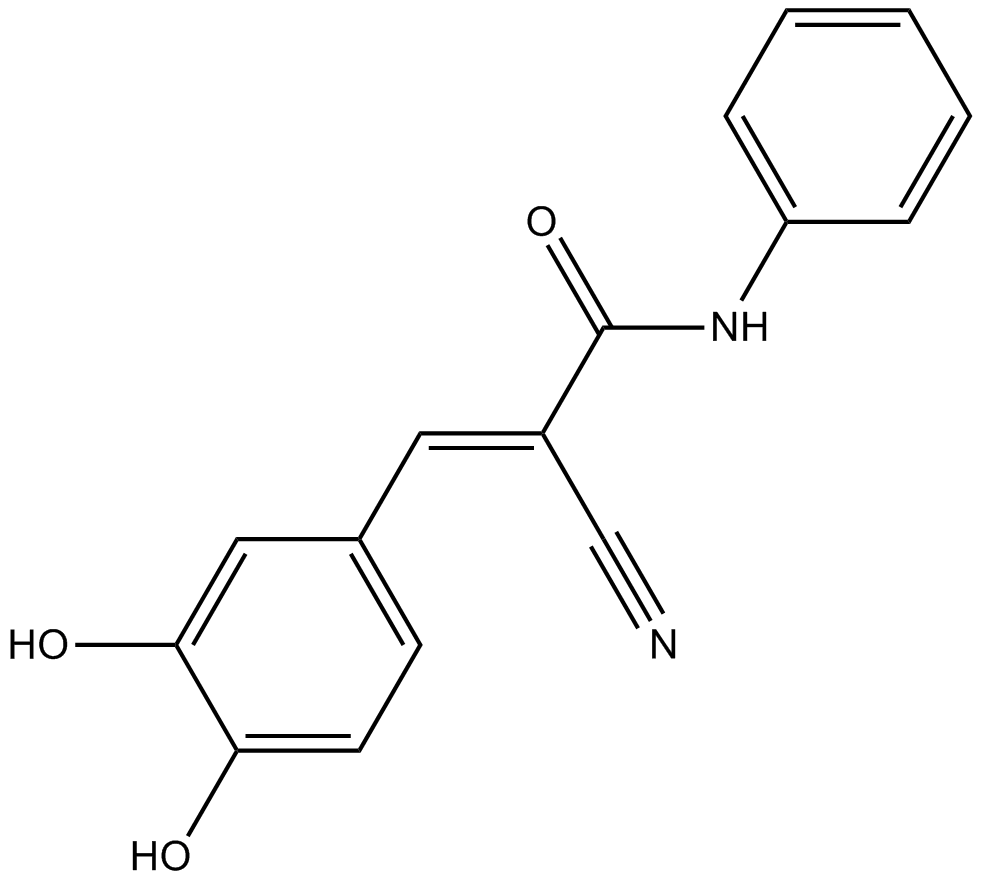 B6378 AG 494Summary: Potent EGFR-kinase inhibitor
B6378 AG 494Summary: Potent EGFR-kinase inhibitor

